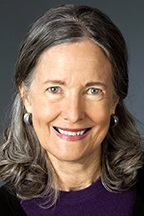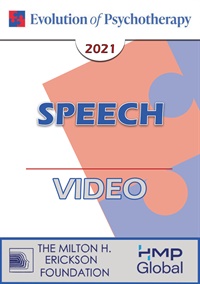EP21 Speech 19 - Doing Imago Relationship Therapy in the Space Between - Harville Hendrix, PhD; Helen LaKelly Hunt, PhD
- Average Rating:
- Not yet rated
- Topic Areas:
- Speeches | Couples Therapy | IMAGO | Therapeutic Process
- Categories:
- Evolution of Psychotherapy | Evolution of Psychotherapy 2021 | Pioneers in Couples and Family Therapy
- Faculty:
- Harville Hendrix | Helen LaKelly Hunt, PhD
- Course Levels:
- Master Degree or Higher in Health-Related Field
- Duration:
- 1 hour
- Format:
- Audio and Video
- Original Program Date:
- Dec 04, 2021
- License:
- Never Expires.
Description
Description: This presentation introduces a relational approach to building conscious partnerships, emphasizing the “space between” individuals as key to creating safety and connection. Core practices include structured Imago Dialog, mirroring, validation, and daily affirmations to strengthen empathy and reduce polarization. The session concludes with a Q&A on enhancing validation, problem-solving, and deepening emotional bonds through empathy.
Syllabus Description: When the Space-Between rather than the Space-Within becomes the source of experience, by implication it is the location of therapeutic intervention. This speech will discuss the shift from the individual to the relational paradigm as the new domain of therapeutic intervention.
Learning Objectives
- To describe the distinction between the individual and relational paradigm and its significance for therapeutic intervention.
- To discuss the implications of the shift for the field of mental health.
- To describe and practice a relational therapeutic intervention.
Credits
Handouts
| Timestamped Transcript (970.7 KB) | 23 Pages | Available after Purchase |
| Ericksonian Learning Snapshot (251.3 KB) | 2 Pages | Available after Purchase |
Faculty

Helen LaKelly Hunt, PhD Related Seminars and Products
Harville Hendrix, PhD and Helen LaKelly Hunt, PhD are partners in life and work. Their lives and work are integrated in their commitment to the transformation of couples and families and to the evolution of a relational culture that supports universal equality.


